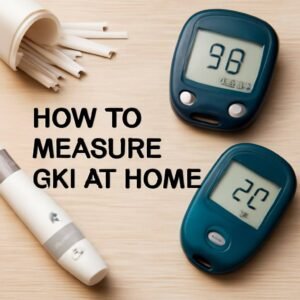When it comes to mobile homes, skirting isn’t just a decorative add-on—it plays a crucial role in protecting your investment. So, how much skirting for a 16×80 mobile home do you need? This comprehensive guide will walk you through everything you need to know, from measuring and materials to costs and maintenance, ensuring you get the best results for your home.
Understanding Mobile Home Skirting
Mobile home skirting is the material that encloses the open space between the ground and the bottom of your mobile home. This space is typically left open during transport but requires coverage after installation to shield the undercarriage from pests, weather, and debris.
Skirting also improves energy efficiency by reducing drafts underneath the home, helping to keep your floors warmer in winter and cooler in summer. There are various materials used for skirting, including vinyl, metal, wood, and concrete blocks, each offering unique benefits.
Why Skirting is Essential for a 16×80 Mobile Home
Skirting does more than just make your mobile home look finished. Here are some key reasons it’s essential:
- Energy efficiency: By sealing the gap under your home, skirting prevents cold air from flowing underneath, reducing heating costs.
- Pest control: It acts as a barrier against rodents, snakes, and insects that might nest beneath the home.
- Structural protection: Keeps moisture and debris away from the underside, helping prevent wood rot and rust.
- Aesthetic appeal: Skirting enhances curb appeal, giving your mobile home a polished and maintained look.
For a 16×80 mobile home, skirting is particularly important because of the large perimeter and potential exposure to the elements.
Measuring Your 16×80 Mobile Home for Skirting
Before purchasing materials, accurate measurement is key. Here’s how to measure:
- Calculate the perimeter: A 16×80 mobile home is 16 feet wide and 80 feet long. The perimeter is: (16+80)×2=192 feet(16 + 80) \times 2 = 192 \text{ feet}(16+80)×2=192 feet
- Measure height: Skirting height typically ranges from 12 to 36 inches, depending on local codes and your home’s elevation. Measure from the ground to the bottom edge of your mobile home’s floor.
- Account for gaps: Don’t forget to factor in areas where doors, vents, or access points will reduce skirting material needed.
Calculating the Amount of Skirting Needed
To find out exactly how much skirting you need, multiply the perimeter by the height of the skirting.
- For example, if your skirting height is 36 inches (3 feet): 192 ft (perimeter)×3 ft (height)=576 square feet192 \text{ ft (perimeter)} \times 3 \text{ ft (height)} = 576 \text{ square feet}192 ft (perimeter)×3 ft (height)=576 square feet
This calculation gives you the total square footage of skirting material needed.
Adjusting for Doors, Vents, and Utility Access
If you have multiple access doors or vents, subtract their square footage:
- Door example: 3 ft wide × 7 ft high = 21 sq ft
- Vent example: 2 ft wide × 1 ft high = 2 sq ft
If you have 2 doors and 2 vents: 2×21+2×2=46 sq ft2 \times 21 + 2 \times 2 = 46 \text{ sq ft}2×21+2×2=46 sq ft
Subtract this from your total: 576−46=530 sq ft of skirting material required576 – 46 = 530 \text{ sq ft of skirting material required}576−46=530 sq ft of skirting material required
Types of Skirting Materials for Mobile Homes
Choosing the right material is crucial for durability, cost, and appearance.
Vinyl Skirting
- Pros: Affordable, easy to install, weather-resistant, low maintenance.
- Cons: Can crack in extreme cold, less durable than metal.
Metal Skirting
- Pros: Very durable, resistant to pests, and long-lasting.
- Cons: More expensive, installation may require professional help.
Wood Skirting
- Pros: Natural look, customizable.
- Cons: Requires maintenance, susceptible to rot and pests.
Concrete Block Skirting
- Pros: Extremely durable, adds insulation.
- Cons: Heavy, expensive, needs professional installation.
Cost Estimates for Skirting a 16×80 Mobile Home
Cost varies by material and installation method.
| Material | Approx. Cost per sq ft | Total Cost (530 sq ft) | Notes |
|---|---|---|---|
| Vinyl | $2 – $4 | $1,060 – $2,120 | Most popular choice |
| Metal | $3 – $6 | $1,590 – $3,180 | Longer-lasting, higher upfront |
| Wood | $4 – $7 | $2,120 – $3,710 | Needs upkeep |
| Concrete Block | $5 – $10 | $2,650 – $5,300 | Best insulation |
Labour costs can add $500-$1,500, depending on complexity.
DIY vs Professional Installation
If you’re handy, DIY skirting can save money but requires time and effort. Professional installation guarantees quality and faster completion, but adds to the cost.
Maintenance Tips for Mobile Home Skirting
- Regularly inspect for damage or pest entry.
- Clean vinyl and metal skirting to prevent mould.
- Repaint or seal wood skirting annually.
- Clear debris to avoid moisture buildup.
Common Mistakes to Avoid When Installing Skirting
- Not measuring accurately.
- Skirting too close to the ground, leading to water damage.
- Ignoring ventilation requirements.
- Using inappropriate materials for your climate.
Environmental Considerations and Building Codes
Always check local regulations for height, ventilation, and materials. Use eco-friendly options when possible, like recycled vinyl or sustainably sourced wood.
Frequently Asked Questions (FAQs)
1. How much skirting do I need for a 16×80 mobile home?
You’ll need approximately 530 square feet of skirting, accounting for doors and vents.
2. What is the best material for mobile home skirting?
Vinyl is popular for affordability and ease, but metal is best for durability.
3. Can I install skirting myself?
Yes, if you have basic DIY skills, but professional help ensures proper installation.
4. How often should I maintain my skirt?
Inspect and clean at least twice a year; wood may require annual sealing.
5. Does skirting improve energy efficiency?
It helps reduce drafts and heat loss beneath the home.
6. What if I live in a cold climate?
Consider insulated skirting options or concrete blocks for added protection.
Conclusion: Final Thoughts on Skirting a 16×80 Mobile Home
Determining how much skirting for a 16×80 mobile home involves careful measurement and material choice, but the benefits are well worth the effort. Proper skirting protects your home, saves on energy, and enhances curb appeal. Whether you go DIY or professional, choose quality materials and stay on top of maintenance for long-lasting results.













